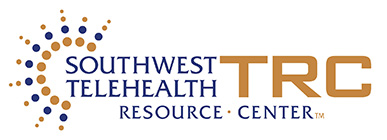The Federation of State Medical Boards (FSMB) recently updated its list of U.S. State and Territories modifying requirements for telehealth in response to COVID-19, such as out-of-state physicians; preexisting provider-patient relationships; audio-only requirements, and more. FSMB's listing of modified requirements for telehealth for Arizona, Colorado, Nevada, and New Mexico are repeated in the full newsletter...
- Home
- About Us
- Region
- Blog
- Online Education
-
Resources
- Artificial Intelligence
- Billing Guides and Resources
- Broadband
- Business & Finance
- COVID-19
- Cybersecurity
- Digital Health Navigators
- Disaster Preparedness
- Fact Sheets
- For Healthcare Providers
- For Patients
- Form Templates
- Funding Opportunities
- General
- Health Access Resources
- Language Service Providers
- Library Telehealth Resources
- National Telehealth Access Points (TAP) Map
- Newsletters
- PodCasts
- Policy & Sustainability
- Quality Improvement and Quality Assurance
- Regional Legislative Tracker
- Standards & Guidelines
- State Specific
- Telemedicine & Telehealth Service Provider Directory
- Telemedicine Information
- Tools & Tips
- Events
- Training
- Contact Us

